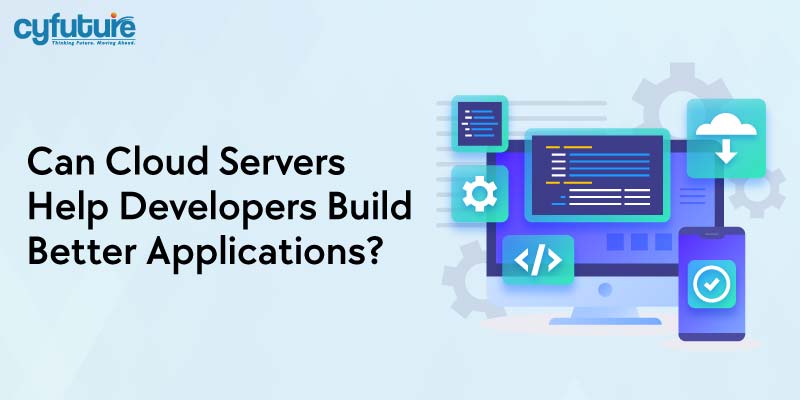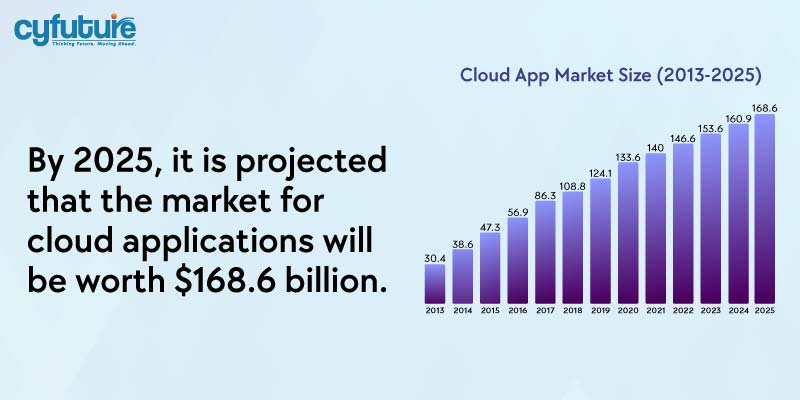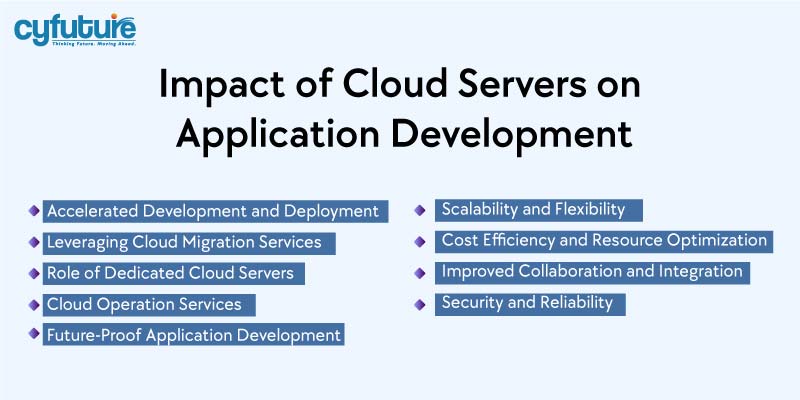-
Get Cloud GPU Server - Register Now!
Toggle navigation

The demand for appropriate, safe, and effective application design is increasing day by day. Moreover, rising customer expectations and rapidly evolving technological settings are challenges, that modern developers must overcome. The quest for a robust solution often leads to a critical question: Can cloud servers help developers build better applications? The answer is an absolute yes!
Comprehending the disruptive effect of cloud servers is becoming increasingly crucial as the digital ecosystem moves toward cloud-centric models. Additionally, a paradigm change that modifies the trajectory of growth, the move from traditional IT infrastructure to cloud servers is more than a fleeting fad. The revolutionary ease of cloud migration services has developed into a crucial requirement for all modern companies.
For any organization seeking unmatched speed and scalability, dedicated cloud servers are the way of the future. The strategic significance of cloud operational services lies in the careful balancing act that has to be done between the expense of cloud servers and the potential value creation that comes with improved capabilities.
In this comprehensive blog piece, we will examine the specific benefits of using cloud servers, with an emphasis on how they assist developers in creating better apps.
However, let’s take a look into a few stats and data before delving deep.

Now, let’s delve into the deep knowledge pool!
The movement from on-premise servers to cloud servers marks a major evolution in technology. Traditional servers, though powerful in their way, are not that flexible or scalable to meet today’s demands. The cloud server presents a dynamic, elastic environment that can keep pace with the ever-changing needs of application development.
Cloud servers are virtualized computation resources accessible over the Internet. Unlike conventional systems, they are not bound to physical hardware and thus allow developers to use a pool of resources residing in numerous data centers. The scalability of cloud servers is unmatched due to such virtualization. One can scale up or down resources per one’s needs.

One of the biggest advantages of using cloud servers is that they are scalable. In a typical environment, yes, a company can scale up, but it will need huge investment in hardware and infrastructure. Cloud servers remove this bottleneck in offering scalability on demand. Quite obviously, it gives developers the facility to assign more resources to handle larger traffic or workload, without applications developing irresponsible features.
Another critical attribute of cloud servers is flexibility. Cloud servers are available in a host of configurations that a developer can use to suit different needs. From a dedicated cloud server for resource-intensive workloads to an affordable shared server, the choices are varied and customizable. This kind of flexibility goes further in choice for operating systems, development frameworks, and databases, allowing developers to craft their perfect fit.
The cost efficiency of the cloud server is one of the major reasons that influence its adoption. Traditional IT infrastructure requires huge upfront costs for hardware, data center setup, and maintenance. On the other hand, cloud servers work on a pay-as-you-go model, where businesses only have to pay as per their utilization of resources. This reduces capital expenditure and optimizes operational costs.
Efficient resource utilization further optimizes the cost of cloud servers. In a traditional setup, underutilized servers are nothing but resources wasted. Cloud servers are dynamically distributed according to demand and can use any given resource to its fullest. This efficiency results in cost savings and superior performance as the resources are pumped in where they are needed most.
Cloud servers can allow development teams to collaborate more strongly. Where teams have traditionally collaborated, this has required cumbersome configurations and the sharing of resources. Cloud servers make it easier with a generally centrally located and accessible hub. Teams in different locations can remotely access and work in the same environment, thus improving productivity while reducing time-to-market.
The other advantage of cloud servers is that they are integrated with other cloud services. Most of the time, cloud providers offer a suite of services that are easily integrated into the cloud servers. Be it databases, machine learning, or analytics, developers can use a whole range of services to enhance their applications. The ability to integrate not only quickens up development but also makes it possible for developers to build more complex and feature-rich applications.
No application can survive without taking proper security measures, and in that respect, cloud servers are doing an exemplary job. Main and big cloud service providers spend millions of dollars and resources on security features to protect your data and applications from intruders. Starting from encryption, and firewalls to multifactor authentication, the presence of all these makes security pretty strong.
Another very critical aspect of the cloud servers is their reliability. Traditional servers are very prone to hardware failure and require constant maintenance. Because of their distributed nature, cloud servers assure high availability and redundancy. In case there is a hardware failure, switching of workload to another server is performed so seamlessly that the service provided is not disturbed. This reliability feature becomes critical for those applications that demand constant uptime and performance.
Cloud servers make the development and deployment process much faster. In a traditional environment, setup, and configuration can be extremely time-consuming. Cloud servers have ready-to-use development environments that a developer can set up in minutes and start using them. The ease of setup reduces the time required to begin the development and hence gets the developers started with coding instead of configurations.
Even the deployment process is simplified as far as cloud servers are concerned. These will have easy and efficient set-ups for Continuous Integration/Continuous Deployment-CI/CD pipelines. While this is so, the building, testing, and deployment processes are automated. The automation not only accelerates the deployment processes but reduces the chances of human errors, hence the consistency and reliability in deploying applications.
However, this migration to cloud servers, though beneficial, may be rather complex. It is at this point that Cloud migration services gain prominence. They provide a planned way for the shifting of applications and data to the cloud with minimum disruption and maximum efficiency. The different kinds of cloud migration services are assessment, planning, migration, and optimization.
An assessment would involve an analysis of the current infrastructure and the determination of the best approach toward migration. Planning would involve formulating a properly elaborated plan for migration that would include timelines, resources, and risk mitigation. The actual migration phase involves transferring the applications and data to the cloud and having everything properly configured and optimized. Lastly, optimization focuses on fine-tuning the cloud environment for optimal performance and cost efficiency.
When applications call for special performance and security, the application of a dedicated cloud server becomes relevant. Unlike shared servers, in a dedicated cloud server, resources such as CPU, memory, and storage are exclusively available to one entity, hence offering consistent performance and improved security. This exclusivity is useful in many applications that either receive high traffic or carry sensitive data.
With dedicated cloud servers, developers have much better control and the ability to customize, unlike shared servers. The developer can configure the server environment for certain needs that assure high performance and security. The said level of control is cardinal for applications whose nature of operation requires fine-tuning with specialized configurations.
The complexity of cloud computing demands great expertise and, hence, is continuously monitored. These cloud operation services will offer the necessary support to keep the cloud environment running. Thus, cloud management in all its aspects is taken care of under monitoring, maintenance, optimization, and support.
Monitoring includes the performance and health of the cloud environment through proactive identification and resolution of issues. Maintenance secures the environment with the latest patches and updates to avert security vulnerabilities and performance-related issues. Optimization deals with fine-tuning the environment for peak performance and cost efficiency. Support provides access to a pool of experts who can assist with issues or challenges at any given time.
Cloud servers are not only a solution for the present challenges but also give a grounding to future-proofing in developing applications. The progress of technology does not seemingly relent in speed, and so the developers have to be prepared to meet the demands of the future. The scalability, flexibility, and integration that cloud servers provide are targeted toward adapting to future trends and technologies.
Artificial Intelligence, Machine Learning, and IoT have emerged as game-changing forces in application development. Cloud servers would provide the infrastructure for that, comprising all the resources needed to leverage these technologies. The cloud servers allow developers to build the most innovative applications by using these emerging technologies. Cloud servers enable one to stay updated with the latest trends and thereby deliver innovative solutions to future needs.
With live technological changes and evolution, the role of cloud servers is about to become very significant in application development. These upcoming trends include serverless computing, artificial intelligence, and edge computing. These new trends will take the developers where no developer has gone before.
Serverless computing, in essence, provides an abstraction of the underlying infrastructure, where the developer can target none but code. There is no need to manage servers, hence reducing operational complexity and related costs. There is a potentiality for application development within a fraction of time, and scaling automatically according to demand.
Cloud servers are meant for deploying and scaling AI and ML models. The extra computational power required for AI and ML workloads is efficiently handled by the cloud servers, enabling developers to build intelligent applications that promote advanced analytics and automation.
It brings computational power closer to the source of the data; hence, latency is reduced, improving performance. This approach is notably very efficient in applications like real-time IoT devices and autonomous systems. The employment of edge computing can easily be integrated into cloud servers to offer a hybrid environment with the best features provided by both centralized and decentralized computing.
Cloud servers have transformed the way developers build applications. With scalability, speed in development cycles, increased collaboration, robust security, and optimization of costs, cloud servers would facilitate developers to build original and high-performance applications.
The serverless computing, AI, and edge computing that will come in the future will make cloud servers even more capable. To developers, the cloud is not a technological change; it’s a paradigm change because it defines what is possible with application development.
In this ever-changing digital world, the question isn’t whether cloud servers can help developers build better applications, but how full utilization of the power of cloud servers can inspire innovation and success. The journey of cloud-based development is more than a fad-it is the future in application development. Welcome to embracing the cloud and unlocking the endless possibilities awaiting you.
Yes, cloud servers can reduce the cost of application development drastically. Besides that, for the pricing model in the cloud server, cloud services operate on a pay-per-use basis, which means that developers will only need to pay for the resources that they utilize. This negates any large upfront investments in hardware and cuts down most ongoing maintenance costs, therefore making it an effective solution for companies of all sizes.
The cloud migration service will guide you expertly with the equipment toward making the transition from on-premise infrastructure to the cloud. These services will make sure that migration is done smoothly without any downtime and, more importantly, without disruption. In this regard, they work on optimizing the applications to the cloud for better results in terms of performance, security, and cost-effectiveness.
Yes, cloud servers are secure for application development. Major cloud providers make available some of the most sophisticated security measures across encryption, identity management, and detection of potential threats to fend off cyber threats from applications. Besides, they follow stringent standards and compliance regulations laid down by the industries, making the environment secure enough for application development.
Indeed, cloud servers are precisely meant for developing applications of AI and machine learning by offering the computational power and scalability required for training and deploying complex models. Specialized tools and services available on cloud platforms provide support for AI and ML to empower developers in building intelligent applications with rich analytics and automation.